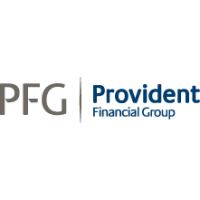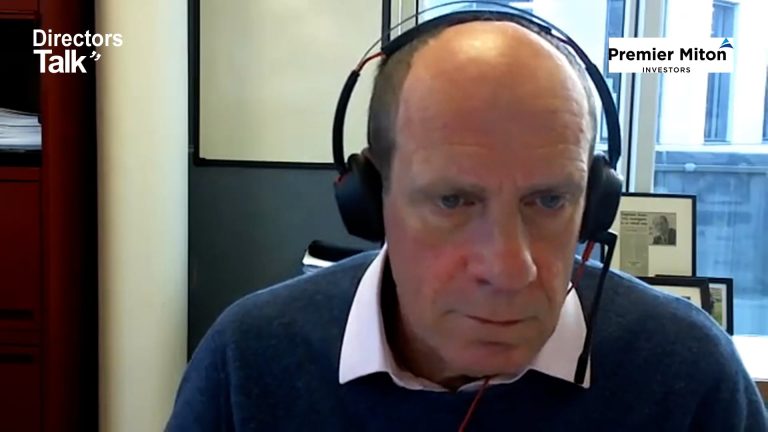Provident Financial plc (LON:PFG), the leading provider of credit products to those consumers who are not well served by mainstream lenders, made the following update on trading for the financial year ended 31 December 2018, ahead of its preliminary results for the year which will be announced on 27 February 2019.
Group
The group has made further good progress during the final quarter against its operational objectives for 2018:
· The Consumer Credit Division (CCD) achieved full authorisation from the Financial Conduct Authority (FCA) on 9 November 2018. Management continue to progress discussions with the FCA regarding the implementation of enhanced performance management of our Customer Experience Managers (CEMs), including some element of variable related pay, which is important in returning the business to run-rate profitability in due course;
· Vanquis Bank has made significant progress in delivering the Repayment Option Plan (ROP) refund programme, with over 1 million customers now refunded, and adapting to the measures in the Credit Card Market Study (CCMS). The refund programme is on-track to be substantially completed in early 2019;
· Moneybarn continues to assist the FCA in its investigation into affordability, forbearance and termination options and is working towards concluding the matter in the first half of 2019;
· Further strengthening of the Board and governance framework; and
· The group’s funding and capital positions remain strong.
Moneybarn has continued to perform well and CCD has performed in line with internal plans during the last quarter of the year. Vanquis Bank has delivered further customer and receivables growth although impairment has been modestly higher than expected. This reflects the continued increase in the use of payment arrangements from enhanced forbearance measures as reported in the October trading statement. The group therefore expects to report profits for 2018 towards the lower end of the range of market expectations of £151m to £166m.*
Commenting on the final quarter of the year, Malcolm Le May, Provident Chief Executive Officer, said:
“I am very pleased with the progress we have made in 2018 on delivering against the operational objectives we set ourselves at the start of the year. The FCA authorisation of CCD and the substantial completion of the ROP refund programme in Vanquis Bank have been major milestones for the group. In addition, we have made good progress on the FCA investigation at Moneybarn and are working towards concluding this matter in the first half of 2019.
We have been progressively tightening our underwriting standards throughout the group in anticipation of the current uncertain UK economic environment we are facing. We will continue to monitor underwriting standards in light of any changes in customer behaviour.
The group has strong funding and capital positions and the actions we have taken over the last 18 months have established a solid foundation for continuing to deliver on our strategic aim of being the leading provider of credit products to the 10 to 12 million consumers who are not well served by mainstream lenders.”
Vanquis Bank
Vanquis Bank delivered fourth quarter new account bookings of 76,000, 17,000 lower than the last quarter of 2017. Total new account bookings for 2018 were 366,000, 71,000 lower than 2017 which reflects the impact of tighter underwriting, the cessation of the Argos contract in early 2018 and a temporary reduction in the marketing programme in the fourth quarter as the business focused on implementation of a new underwriting platform which went live in November.
Customer numbers ended the year at 1,773,000, representing year-on-year growth of 3.1%. The growth in customer numbers and credit line increases to established customers combined to produce receivables growth for the year of approximately 5%. In response to the CCMS measures on persistent debt, the business increased the required minimum payments due from customers in the fourth quarter of the year and expects to roll-out the use of recommended payments in the near future. The timing of implementation of these measures has not resulted in a material impact on receivables growth in 2018 as was anticipated at the start of the year. However, the measures are expected to moderate receivables growth in 2019 as they fully flow through into customer repayment behaviour.
There has been some pressure on delinquency and arrears metrics in the second half of the year. This primarily reflects the continued increase in the use of payment arrangements, as first reported in October 2018, relating to enhanced forbearance procedures. Underwriting standards have been progressively tightened over the last 18 months which, together with the historic resilience of the business model, means that Vanquis Bank is well-positioned if there is any deterioration in the UK economic environment.
The annualised risk-adjusted margin has shown a further reduction in the last quarter. This reflects two factors. Firstly, the anticipated moderation in the revenue yield, primarily due to the continuing reduction in the penetration of the ROP product within the customer base following the cessation of sales to new customers in April 2016 together with the continued expansion of the product offering into the near prime segment of the market through the Chrome branded card. Secondly, the modest increase in impairment.
The refund programme to current and past ROP customers is on-track to be substantially completed in early 2019. Following the step up in the volume of refunds being processed in the final quarter, over 1 million customers have now been refunded, representing approximately £160m of cash refunds and balance reductions. The level of ROP-related complaints has remained lower than expected following the announcement of the settlement on 27 February 2018.
CCD
CCD was fully authorised by the FCA on 9 November 2018. This followed the successful implementation of the home credit recovery plan over the previous 12 months, including the roll-out of a new operating model which provides improved oversight and control over field activity and customer outcomes.
The recruitment of new customers in home credit was marginally above plan during the peak fourth quarter trading period. In addition, Satsuma continued to deliver strong growth with fourth quarter new business and further lending volumes showing a year-on-year increase of approximately 38%. As a result, CCD active customer numbers and receivables ended the year at 560,000 and approximately £290m respectively, marginally ahead of internal expectations and stable with June 2018.
The collections performance of credit originated since the fourth quarter of 2017 continues to remain broadly in line with the levels achieved prior to the change of operating model from self-employed agents to employed CEMs in July 2017, where the CEM has issued the credit and the ownership of the customer relationship is strong. However, the collections performance on credit originated prior to the fourth quarter of 2017, where the CEM typically did not originate the credit following the change in operating model, remains significantly lower than historic levels and has not shown any improvement, consistent with the experience reported in the second and third quarters of the year. Importantly, however, these balances now represent less than 10% of the carrying value of receivables.
As previously indicated, performance management of the field force continues to be focused on managing activity and customer outcomes without the use of performance-related pay or financial objectives. The business is continuing to progress discussions with the FCA regarding the implementation of enhanced performance management of CEMs based upon a balanced scorecard approach and some element of variable related pay. The implementation of enhanced performance management is essential to improving the efficiency and effectiveness of the field organisation, both in terms of delivering consistently good customer outcomes and returning the business to run-rate profitability in due course through growing the customer base and improving collections performance.
Action continues to be taken to align the cost base with the reduced size of the business. Whilst the business has invested in field management to improve oversight and control, the number of CEMs has shown a further reduction from around 2,300 at the end of September to around 2,100 at the end of December. In addition, the central cost base and resources within central support functions continues to be carefully managed.
Moneybarn
Moneybarn has continued to deliver strong growth with demand and used car prices remaining robust. As a result, fourth quarter new business volumes showed year-on-year growth of 21%. Customer numbers ended the year at 62,000, representing year-on-year growth of approximately 24%, with receivables showing a similar level of growth.
Default rates and arrears levels in Moneybarn have remained stable over the last six months following the initial tightening of underwriting in the second quarter of 2017 on higher risk categories of business and the removal of a tier of lower value business in the second quarter of 2018. As a result, the annualised risk-adjusted margin has shown further improvement during the final quarter of the year.
Moneybarn continues to assist the FCA in respect of its ongoing investigation into affordability, forbearance and termination options and is working towards concluding the matter in the first half of 2019.
Exceptional costs
The group expects to report exceptional costs of approximately £55m in 2018, of which £37m were incurred in the first half, representing: (i) costs associated with the implementation of the home credit recovery plan of approximately £30m, comprising intangible and tangible asset write offs, redundancy and consultancy costs (June 2018: £18.1m); (ii) the 8% premium and fees paid on redemption of 89% of the £250m senior bonds maturing in October 2019 amounting to £18.5m (June 2018: £18.5m); and (iii) approximately £7m of non-cash pension charges in respect of the equalisation of Guaranteed Minimum Pensions following the High Court judgement against Lloyds Bank PLC and others in October 2018 (June 2018: £nil).
Regulation
The FCA’s final rules and guidance from PS18/19 ‘Assessing creditworthiness in consumer credit’ came into effect on 1 November 2018. All of the group’s businesses have taken the necessary measures to meet the affordability principles arising from this review.
On 18 December 2018, the FCA published CP18/43 in respect of its review of high-cost credit, including final rules and guidance in respect of home-collected credit. The changes made by CCD to the home credit operating model over the last 18 months, in particular the recording of all sales interactions with customers, means that the business will be able to evidence compliance with the revised requirements by the deadline of 19 March 2019.
Dividends
As previously communicated, the Board expects to declare a nominal dividend in respect of the 2018 financial year.
* Market expectations in this announcement represent a mean consensus 2018 group profit before tax, amortisation of acquisition intangibles and exceptional items of £159m with a range of £151m to £166m based on the forecasts published by 12 equity research analysts.








































